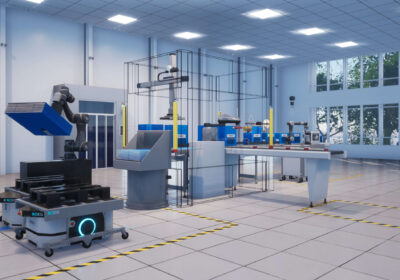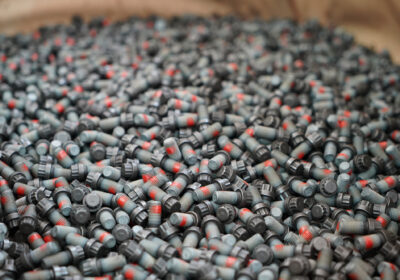UK composite materials manufacturer, TISICS is working in collaboration with the Advanced Structural Testing Centre (ASTC) of the AMRC with Boeing to explore the development of materials for demanding environments, such as aerospace, transport and energy.
TISICS specialise in the development and manufacture of high strength, lightweight titanium metal matrix composites. Reinforced with the firm’s unique silicon carbide monofilaments, the material could be of great benefit in areas where high strength and low-weight are critical to performance.
As part of a programme of work, co-funded by the Innovate UK, the Advanced Structural Testing Centre (ASTC) will be working with TISICS to complete fatigue testing and certification on titanium composite actuator rods.

The rods are being developed for use in commercial aircraft assemblies such as landing gear, wings and engines, and are reinforced with silicon carbide, a metal matrix composite designed with reportedly exceptional compression strength. The lightness and corrosion resistant are also ideally suited to landing gear applications.
TISICS is also developing actuators rods in highly specialised aerospace technology such as satellites where lightweighting is critical to the design of components, as saving the smallest amount of weight can have a massive impact on launch costs.
Managing director of TISICS, Stephen Kyle-Henney commented: “TISICS metal composite technology has the potential to save 35 – 70% weight on many aircraft and space system components. This work demonstrates the advances in the material and manufacturing performance over the past four years.
“The data produced by the project will enable us to verify performance and raise investment to mature the technology to production, generating UK jobs and international product sales in these growing high value markets.”
Head of the ASTC, Phil Spiers explained: “Materials used in high-value applications such as this, are required to operate in demanding environments, where high load and damage tolerance is critical. The ability to develop materials tailored to these situations gives UK businesses a competitive edge in a global market.
“Helping TISICS to prove out their concept by testing to support the manufacturing techniques and validate the performance of the rods, will allow us to demonstrate a part which could halve the weight of a traditional steel actuator rod; maximising weight savings for aerospace manufacturers.
“The project will open up big opportunities in the aerospace sector as there can be as many as a few hundred actuator rods in every aircraft. Weight savings can many provide opportunities to create value and improve performance.”
Spiers added: “We are already working with TISICS to develop the fixtures and fittings needed for the testing, ready for the new components to arrive on site. The project is a fantastic opportunity for us to demonstrate how collaborative working can showcase UK manufacturing skill.”








